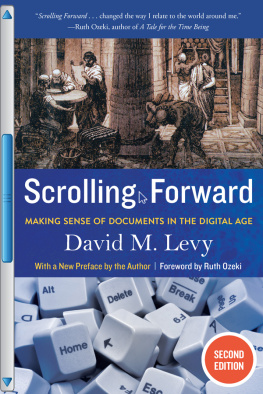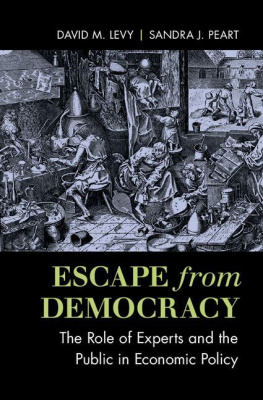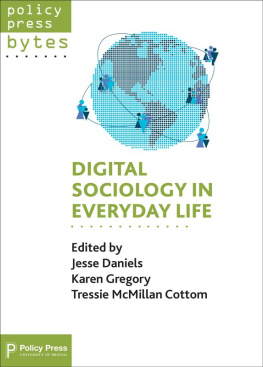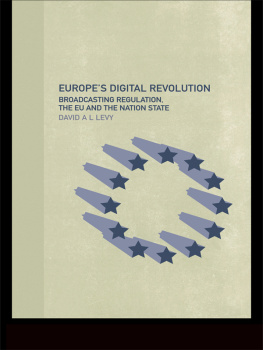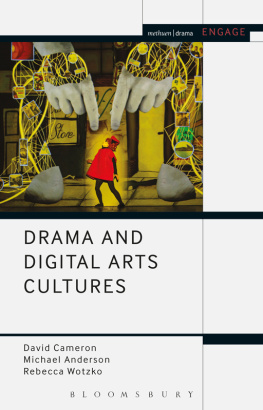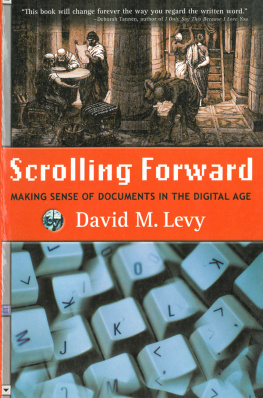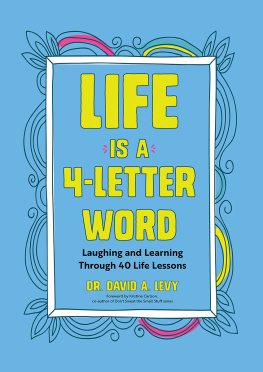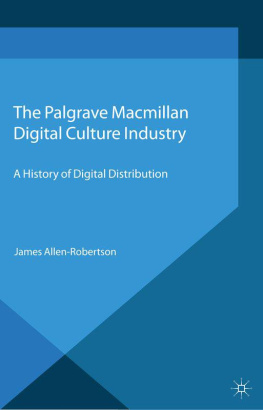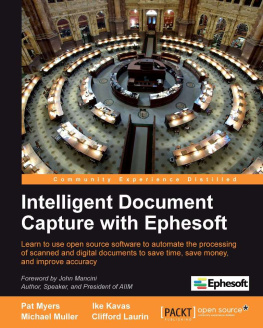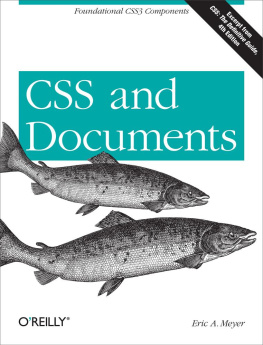Copyright 2001, 2016 by David M. Levy
Foreword copyright 2016 by Ruth Ozeki
All rights reserved. No part of this book may be reproduced in any manner without the express written consent of the publisher, except in the case of brief excerpts in critical reviews or articles. All inquiries should be addressed to Arcade Publishing, 307 West 36th Street, 11th Floor, New York, NY 10018.
Second Edition
New York: September 11 photograph by Larry Towell/Magnum Photos.
The House Was Quiet and the World Was Calm from The Collected Poems of Wallace Stevens, copyright 1954 by Wallace Stevens. Used by permission of Alfred A. Knopf, a division of Random House, Inc.
Mercury Villager SUV ad courtesy of Ford Motor Company
The Annunciation, with Saint Emidius painting by Carlo Crivelli, used by permission of the National Gallery Picture Library, London
Arcade Publishing books may be purchased in bulk at special discounts for sales promotion, corporate gifts, fund-raising, or educational purposes. Special editions can also be created to specifications. For details, contact the Special Sales Department, Arcade Publishing, 307 West 36th Street, 11th Floor, New York, NY 10018 or arcade@skyhorsepublishing.com.
Arcade Publishing is a registered trademark of Skyhorse Publishing, Inc., a Delaware corporation.
Visit our website at www.arcadepub.com.
Visit the authors website at www.davidmlevy.net.
Visit Ruth Ozekis website at www.ruthozeki.com.
10 9 8 7 6 5 4 3 2 1
Library of Congress Cataloging-in-Publication Data is available on file.
Cover design by Owen Corrigan
Cover photo: Thinkstock
Print ISBN: 978-1-62872-327-4
Ebook ISBN: 978-1-62872-698-5
Printed in the United States of America
Praise for Scrolling Forward
Scrolling Forward ... changed the way I relate to the world around me.... This book changed the way I thinkand, more importantly, the way I feelabout written language, which is to say it changed the way I think and feel about time and text, mortality and materiality, meaning and being.
from the foreword by Ruth Ozeki,
author of A Tale for the Time Being
A masterpiece. Insightful, penetrating, and beautifully written. [Levy] takes us on a personal journey that reveals the essence of documents, their pragmatic, their communal, and their spiritual roles, roles that are often intertwined but go unnoticed.... This book will speak to a wide audience, helping us all better understand how we create meaning for ourselves and others.
John Seely Brown, former director of Xerox Palo Alto
Research Center, coauthor of The Social Life of Information
A fascinating and original personal mediation and cultural exploration... This book will change forever the way you regard the written word.
Deborah Tannen, author of
You Just Dont Understand
A nuanced, sympathetic, and endlessly fascinating portrait of our most ubiquitous servant and companion: the document... Levys discussion goes far beyond the usual hype and techno-mystique to focus on the deepest questions of human communication and meaning. That he manages to bring all this off with warmth and good humor is not the least of the gifts this book offers.
Norman Fischer, author of The Strugglers and
former abbot of the San Francisco Zen Center
Absorbing... [Levy] is both adept in new technologies of writing and steeped in traditional ones... Refreshing to anyone weary of the platitudes of high-tech hyperbole and indignant old guard nostalgia.
Geoffrey Nunberg, commentator on Fresh Air and editor of
the American Heritage Dictionary and The Future of the Book
Fascinating... Levy provides a rich contextpersonal, historical, philosophical, spiritualfor understanding these humble artifacts of human thought and human sharing.
David Weinberger, NPR commentator
and author of Too Big to Know
Questions about how books and libraries will fare in the digital age... are elevated to exquisite and philosophical explanations of how we humans find meaning in life.
Deanna Marcum, former president of the
Council on Library and Information Resources
Readers will never look at a deli receipt in the same way after finishing this gripping discussion of written forms.... [Levys] assessment of how documents work and what they say about our culture and values is a worthy one.
Publishers Weekly
Levy offers a vigorous, philosophical, and intellectually stimulating interpretative overview of [documents] evolution and impact on culture.... As he considers the vagaries of digital technologies versus our craving for order, he expresses unexpectedly poetic insights into our carried-in-the-genes sense that there is a sacred quality to reading, even in the age of multitasking.
Booklist
Also by David M. Levy
Mindful Tech: How to Bring Balance to Our Digital Lives
For Zari

Why should I wish to see God better than this day?
I see something of God each hour of the twenty-four,
and each moment then,
In the faces of men and women I see God,
and in my own face in the glass,
I find letters from God dropt in the street,
and every one is signd by Gods name,
And I leave them where they are,
for I know that wheresoeer I go,
Others will punctually come for ever and ever.
Walt Whitman, Song of Myself
as reproduced in the Peter Pauper edition of Leaves of Grass
Contents
Foreword
I F YOU ARE READING THIS forewordand for the sake of this exercise, Im going to assume that you are indeed reading it and not washing the dishes or watching a ball game on TV or checking your emailthen you are holding a book in your hands. It might not be the kind of book your grandparents learned to read when they were little. They might not even recognize your device as a book. But for the sake of our discussion, lets agree to call this thing youre reading a book, regardless of whether it has an on/off switch or whether youre reading it on a screen or on pages made of paper, which you must operate by turning rather than swiping because they can tear.
This book youre holding is called Scrolling Forward: Making Sense of Documents in the Digital Age , and its a book that changed the way I relate to the world around me. Thats saying a lot. Few books have such a profound and lasting effect on a life, and as a result, this is one of my favorite books, which is also saying a lot because I read a lot of books. So youre holding it, and Im holding it, and while we are holding the same book, I think we can agree that they are different books, too.
My copy of the book comprises 212 pages, bound between soft covers, containing some 75,000 or so words, not including the handwritten ones that Ive scribbled in the margins over the past decade, which wind sinuously up and around the edges of the pages, occasionally trespassing into a column of underlined print or spilling excitedly into the gutter or onto an adjacent page, peppered with exclamation points and threaded with arrows. Your book does not contain my delighted marginalia, although it might contain other jottings if you happen to be rereading your old copy of the book, as I am, or if perhaps you purchased a secondhand edition, previously owned by a reader as besotted as I.
However, if your book is the new and long-awaited 2016 reprint by Arcade Publishing, its pages are no doubt still pristine and free of user annotation. Im fairly certain they wont remain that way for long. Im fairly certain that by the time you finish reading it, your copy will be as replete with your thoughts, ideas, and exclamatory musings as my copy is with mine.

